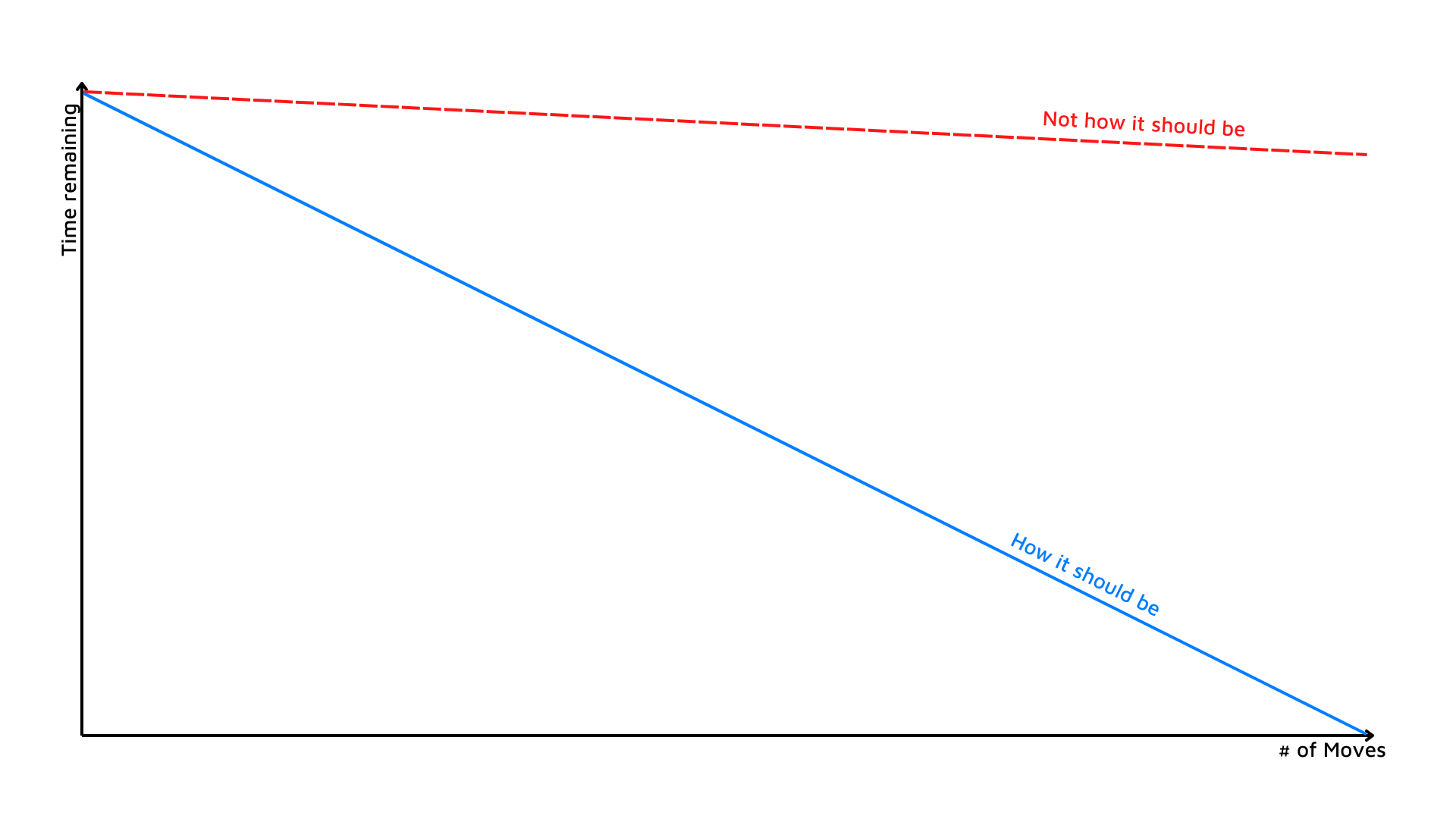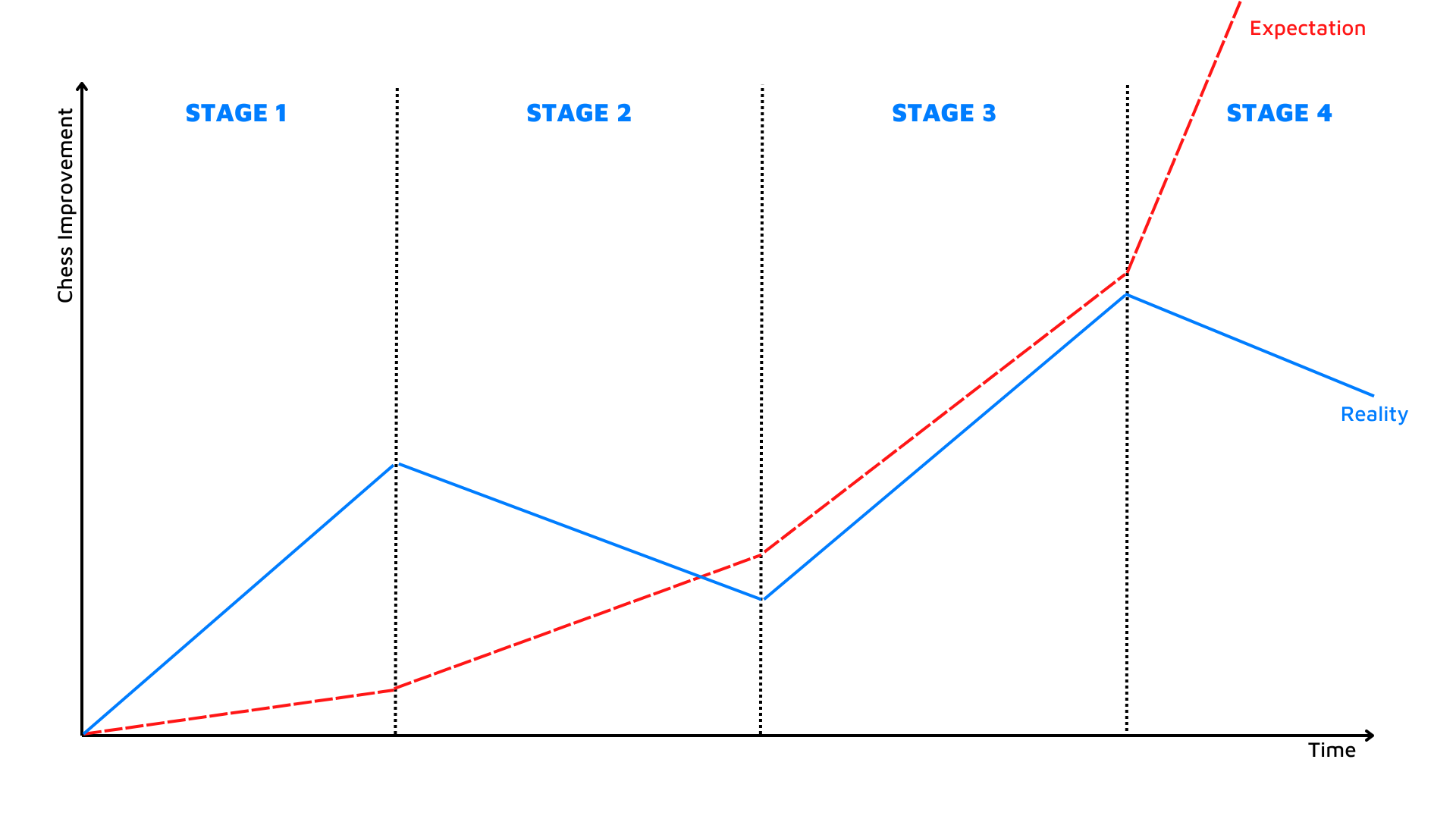Why Am I So Bad at Chess? And What To Do About It
Have you ever found yourself asking “Why Am I So Bad at Chess?” after losing a game? Well, you’re in good company. We all have! Chess is usually considered a game of intelligence and mental ability – but this is far from the whole truth. If you’re bad at chess, you aren’t necessarily any less intelligent than a person who mastered the royal game. But still, there might be some reasons you aren’t reaching your full potential in chess. Let’s explore them together.
We came up with five reasons that might be the culprit of why you’re still bad at chess. Please don’t take them as an insult, but sometimes you just have to face the facts, especially if your goal is to get better at chess.
You’re Not Taking Chess Seriously
While chess might be a fun game and a relaxing pastime for most, improving at chess requires serious focus and work.
One of the main reasons why players don’t reach their full potential at chess is because they aren’t taking the game (and especially the training) seriously. Whether it’s not putting in enough effort to learn and improve your skills, or simply not treating each game as a serious endeavour and a learning opportunity, these habits definitely will hold you back from climbing the rating ladder. It’s important to approach chess with dedication and a willingness to grow, as this will help you develop the knowledge and experience necessary to succeed.
So, if you’re looking to improve your chess game, it might be time to take a step back and consider what changes you need to make in order to take your chess game to the next (elo) level.
You’re Playing Too Fast
If your time management looks something like this:

Then you are definitely not reaching your full chess potential.
Bad time management is a huge factor that can contribute to why you’re not performing well in chess. Chess is a game that requires focus, concentration, and careful consideration of each move. Most of us chess players struggle with actually taking the time to calculate and think deeply about a position. With the rise of short time formats in online chess, we tend to blitz out our moves, even in classical or rapid games.
This leads to a lot of unnecessary and avoidable blunders.
You Don’t Anticipate Your Opponent’s Moves
Another common reason why you may be bad at chess is because you don’t anticipate your opponent’s moves. Anticipating your opponent’s tactics and strategy is a key aspect of chess and gives you a substantial advantage in the game. After your opponent makes a move, you need to ask yourself:
- How exactly did the position change due to this move?
- Is my opponent threatening anything?
- What is the bigger plan here?
With those questions answered, you will be better prepared to counter their strategy.
On the flipside, if you don’t put in the effort to anticipate your opponent’s moves, you’ll likely find yourself caught off guard and scrambling to make a defense. This will lead to costly mistakes and ultimately result in a loss. Make sure to implement this in your next games, so you can finally stop being bad at chess.
You’re Lacking a Good Opening Repertoire
An often overlooked cause of bad chess skills is a lacking opening repertoire. The opening phase of the game is critical and sets the tone for the rest of the game. With a strong and varied opening repertoire you will gain an advantage from the start and give you a better chance of winning.
On the other hand, if you have a limited or weak opening repertoire, you’ll definitely struggle in early stages of the game and often make crucial mistakes, leading to a disadvantage or an early loss. To improve your opening game, it’s important to study and practice different openings, understand their strengths and weaknesses, and work on developing a well-rounded and dynamic opening repertoire.
Here are some common openings to study extensively:
- Ruy Lopez / Spanish Game
- Italian Game
- Sicilian Defence
- Queen’s Gambit
- Caro-Kann Defense
You’re Prone To Rage and Tilting
Does losing a game make you angry, ragy and leads to a spiral of worse and worse play? Welcome to the world of tilting. A phenomenon that is well-known in almost all online games, but is especially detrimental to your chess performance. When you get frustrated or upset, it can cloud your judgment and lead to impulsive decisions, which in turn leads to mistakes that can cost you the game.
We have a full article on how to stop rage and tilt in chess here on Chessily, make sure to check that out if that is the reason you are still not performing at your highest level. The gist of it is:
- Maintain a level head and stay calm.
- Finding healthy ways to cope with stress and frustration.
- Taking frequent breaks from chess.
- Setting realistic expectations.
How To Stop Being Bad at Chess
There’s no question about it: chess can be a frustrating game, especially when you don’t perform to your own expectations. Of course, the only remedy to being bad at chess is to improve your skills. However, there are some other tips that might help you alleviate the feeling of not performing well at the royal game.
So here’s three actionable tips you can implement right away, so you don’t feel like you’re THAT bad at chess.
Stop Blundering With a Pre-Move-Checklist
We’ve talked alot about how having a pre-move-checklist can help you stop blundering, and in turn feeling like your getting better at chess (well, you actually are). Essentially, you want to have a certain list of questions you go through before making your move. An example would be:
- Checkmates?
- Captures & Attacks?
- Checks & Tactics?
For Checkmates, make sure there is no possible way for my opponent to checkmate after you make your move. This is the most imminent threat, so check it first.
For Captures & Attacks, see if your opponent can capture or dangerously attack any of your pieces after you make your move.
For Checks & Tactics, make sure there are no dangerous checks you could run into, especially those that might make you lose a piece in the process.
Using this pre-move-checklist should save you from 99% of blunders and instantly make you win more games (or lose less). Of course, you can also adjust it to your own liking.
Set Reasonable Expectations
You might feel like you are constantly stuck at a certain rating and not improving at all. However, this is most likely only true for the short-term. When we want to achieve something, we want to do it as quickly as possible. But chess improvement is a slow process:

Not being bad at chess (whatever that means) is not a linear process at all. Expect up’s, down’s and some more down’s.
To avoid being frustrated and upset with the (seeming) lack of progress, make sure to set realistic and conservative expectations. It can takes months to years to even see slight progress in your rating, depending on where you start.
Keep a Chess Diary
Another useful tool to keep up with your progress, and make you not feel like you are stuck as a bad chess player, is a chess diary or journal.
When you boil it down, there are two forms of chess diaries:
- During play
- Journaling to keep up with progress
Both of them can be very impactful for growing out of the feeling of being bad at chess.
Writing down your thoughts and decisions during games will significantly help you reflect on your play and gain insights into your thought process. This is especially useful for analyzing why you made a certain move or evaluated a position the way you did. Obviously, don’t start opening up the notebook during bullet or blitz games, but rather longer time-formats, such as classical or even rapid. Make sure to read back on your thought process during post-game analysis.
For a more long-term journaling approach, try to summarize your chess progress day-by-day or week-by-week. You can write about questions like:
- What did I achieve today?
- What is still a struggle for me?
- How did I feel when losing/winning?
Also, make sure to track your rating. This will show you that you aren’t stagnating in your quest to climb the rating ladder.
Chess Improvement Articles To Make You a Better Player
We have a ton of useful tips & tricks here on Chessily to make you a better chess player. You can browse through all of them here:
- How to Overcome Chess Plateaus: Tips for Breaking Through
- The Most Common Chess Mistakes and How to Avoid Them
- Are Puzzles Useful For Chess Improvement?
- Why Am I So Bad at Chess? And What To Do About It
- How To Stop Blundering in Chess
- How To Improve at Rapid Chess
- How to Get Better at Bullet Chess
- How To Get To 1500 Rating in Chess: A Practical Guide

